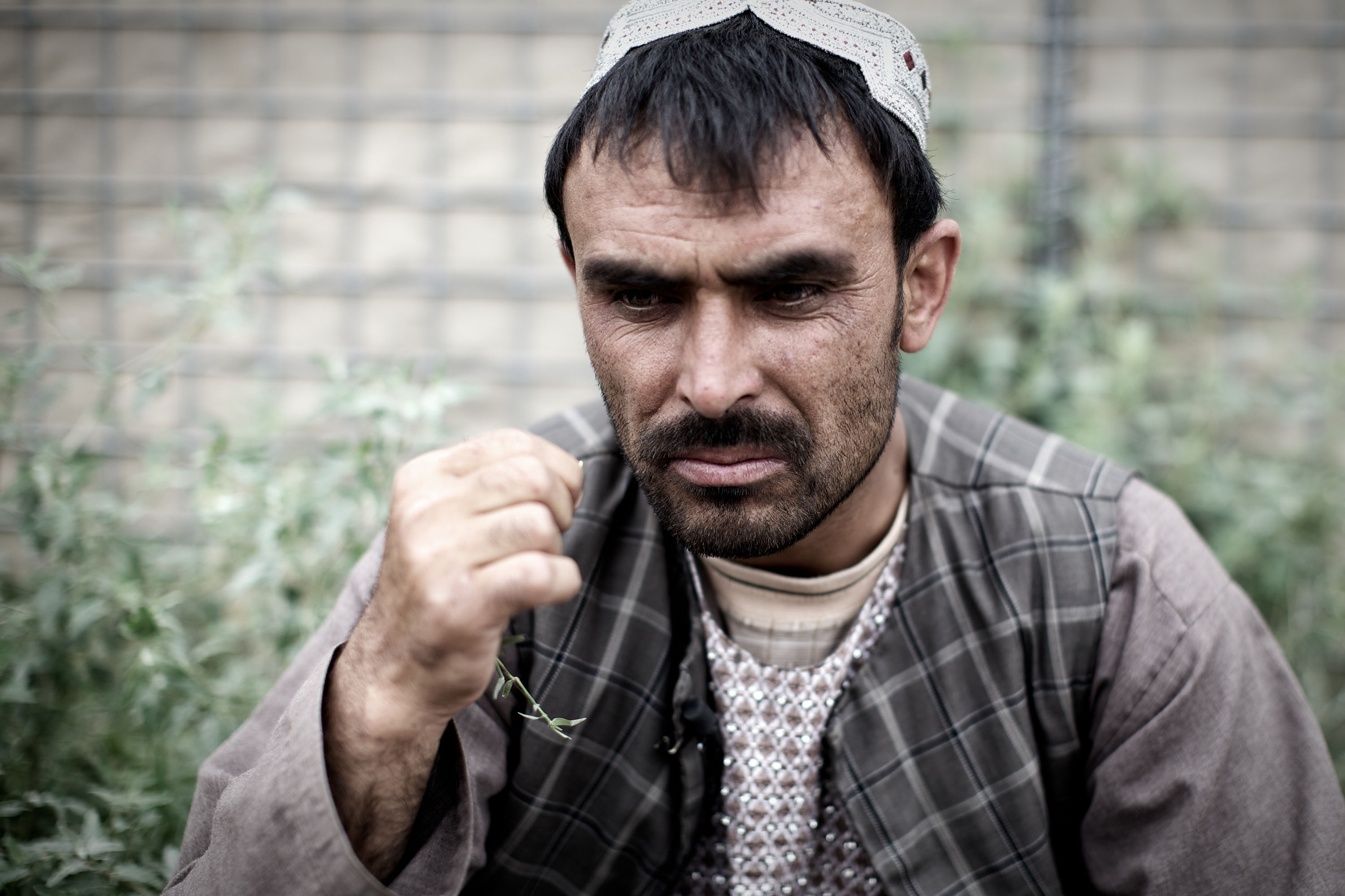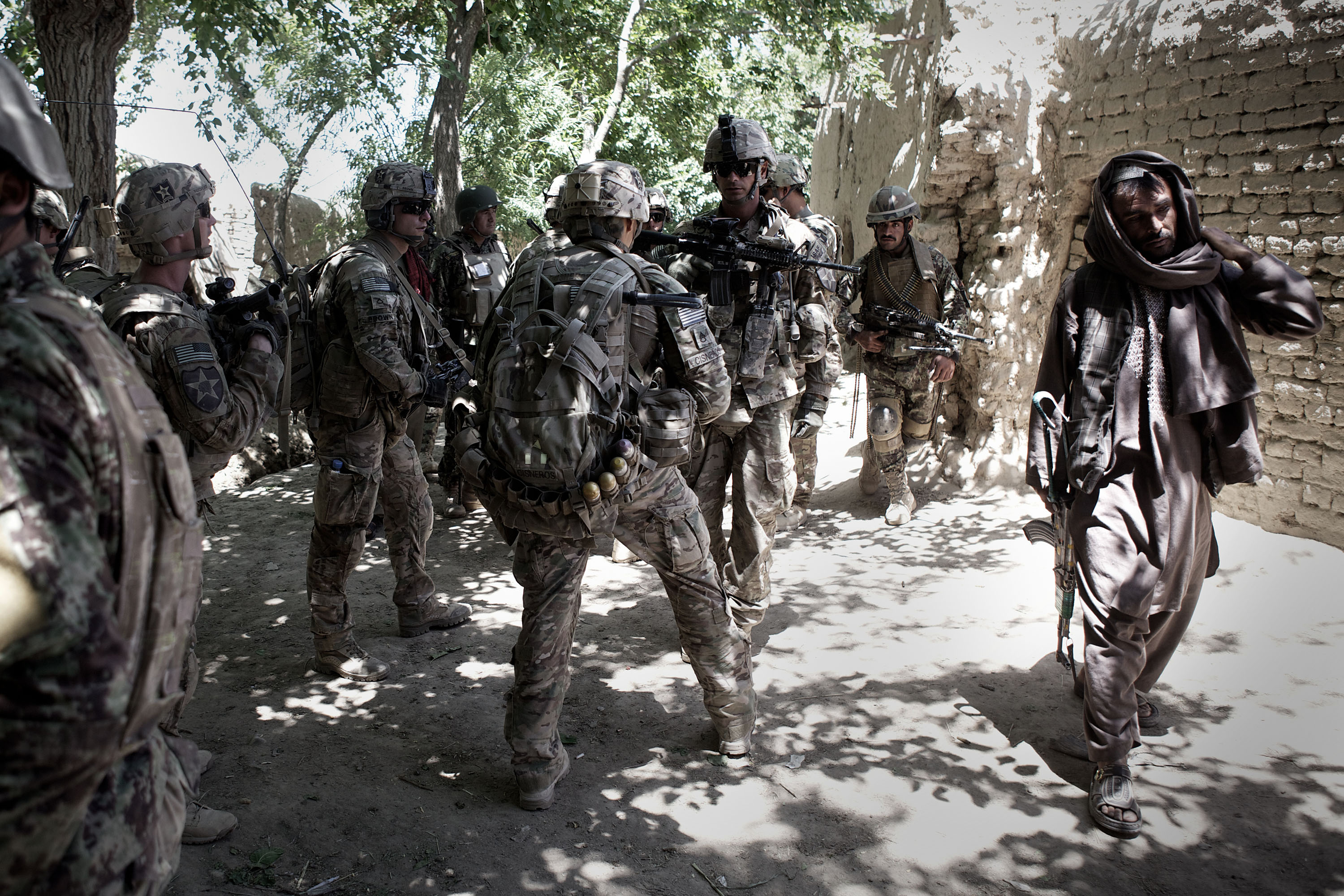
Afghanistan: Drawdown
As the US draws back its combat forces from Afghanistan, what will they leave behind?
Filmmaker: John D McHugh
By 2014, in line with a pledge made by President Barack Obama, the US aims to have withdrawn all its combat troops from Afghanistan.
Keep reading
list of 4 itemsMyanmar Army on the Ropes
Slapped: Speaking Up In Thailand
Slovakia: The Return of Fico
Indeed, quietly and unobtrusively, that process has already begun. As units come to the end of their tour of duty they are not being replaced, military hardware is being packed into containers and trucks ready for the long trip home and responsibility for the country’s security is gradually being handed over to units of the Afghan army and police.
People & Powerhas been tracking the countdown to the withdrawal through an occasional series of films on the latter days of the Nato coalition’s long ground war against the Taliban.
For more than a decade now, the US and its allies have been spending a fortune in blood and treasure on Operation Enduring Freedom, but what, if anything, have they actually achieved? And perhaps more importantly, what sort of Afghanistan will the US forces bequeath to their Afghan counterparts when they finally leave?
Earlier this year, as the conflict entered its last phases, we sent filmmaker John D McHugh back to Kandahar (an area in which he first worked in 2006) to spend time with the US infantry units working towards the withdrawal.
Though they have been pulling out of their forward operating bases they still conduct regular foot patrols in company with units of the Afghan security forces – most crucially with the Afghan Local Police (ALP), which many see as vital to the country’s future security.
At first it seemed that a modicum of stability had been achieved, with no real sign of the usual Taliban ‘spring offensive’, which traditionally marks the end of the opium poppy growing season in rural areas of Afghanistan.
But as one unit discovered, any hope that hostilities would be suspended until after the Americans had gone was soon dispelled.
| Filmmaker’s view |
By: John D McHugh
The episode would have been familiar to anyone who had spent time with the US frontline troops in this part of Afghanistan over the past ten years – although, as always, it came as an unwelcome surprise. As the bullets snapped and cracked over my head, I ducked, instinctively hit the record button on my camera and tried to make myself as small as possible.
All around me US troops were returning fire on their attackers, hidden in a tree line a few dozen metres away.
The unit commander, Captain Matthew Boise, from Bayonet Company, 1-38 Infantry, barked out orders, used his radio to coordinate with the attack helicopters above, and attempted to turn the Talban ambush to his advantage.
Several soldiers had been caught in the open by the initial burst of fire, and had immediately hit the dirt. The natural instinct to run for cover has been exploited by the Taliban in Kandahar over the years, and they have learned to lay Improvised Explosive Devices (IEDs) in likely areas of dead ground. The tactic is simple; shoot at the Americans and force them to dive into a nearby gully where they will detonate an IED.
Of course, jumping, or even stepping, on an IED is a lot more likely to kill you on one of these patrols than getting shot.
The men of Bayonet Company know this; they have already lost two soldiers to roadside bombs in this deployment. But the Taliban also know that the constant fear of getting blown up is psychologically debilitating.
So the Americans carefully sweep and clear each footstep of a patrol’s progress with a mine-detector, while the man behind uses spray paint to mark what has become known as “the path of life.” And then if an attack occurs, US military
 |
| ‘Down in the dust, I concentrated on filming the US soldiers closest to me’ [John D McHugh] |
protocol dictates that their men suppress the urge to seek shelter, get down on one knee and return fire at the enemy.
Down in the dust, I concentrated on filming the US soldiers closest to me. Bullets were striking the wall just above the heads of those on the ground a few yards away.
One hitched himself up as though to crawl out of harm’s way but his buddies screamed at him to stay down until they could suppress the incoming fire. A soldier loaded a high explosive round into his Carl Gustav shoulder-mounted rocket launcher and I heard Captain Boise shout “Not into the village.”
When I started covering the war back in early 2006, I spent a lot of time here in Kandahar’s Panjwayi district. With the US departure date of 2014 looming, and the drawdown in full effect, I had come back to see how things had changed. But now, as the fighting raged around me in this small village called Pay-E Moluk, I could not help but think that the future for Afghanistan looked grim.
Fighting alongside the Americans were soldiers from the Afghan National Army (ANA) and officers of the Afghan Local Police. For years the planned US exit strategy has been to hand over to the ANA.
Officially, it is ethnically balanced to reflect the diversity of Afghanistan, and so the soldiers are drawn from all over the country. In reality, few come from the Pashtun tribes of the south, and so the ANA is often considered as much a foreign occupier as the coalition troops.
To address this issue, the Afghan Local Police (ALP) was set up, a new force, made up of local recruits. The theory is that local men will fight harder to protect their family and friends, while at the same time drawing on their local knowledge to keep the Taliban out of their community. Now, the policemen of Pay-E Moluk were putting that theory to test.
 |
| For years the planned US exit strategy has been to hand over to the Afghan National Army [John D McHugh] |
Pay-E Moluk is a tiny village, and on its edge is an ALP checkpoint. It was set up to stem the flow of Taliban fighters moving through the area from the town of Zangabad further to the west, but immediately and inevitably it came under regular attack.
I had met the local ALP commander, Abdul Jalil, at a training academy run by the US military a few days earlier. On the first day of class only one policeman had shown up.
He said the others were attending the funeral rites of a colleague who had been killed by the Taliban in a gunfight. But then Jalil had arrived with some others. He said the training was too valuable to miss. Some new ALP recruits are selected to go on a three week course run by US Special Forces, but many receive no training at all. This has led to a multitude of problems with ill-prepared police being accused of extortion, bribery, collusion with the Taliban, selling their weapons and ammunition, and worse.
‘An Afghan solution to an Afghan problem’
Around the same time, about a week before the ambush, Lieutenant (Lt) Benjamin Troxell was making preparations to go out on a mission in support of the ALP. The officer stood by the heavily armoured Stryker vehicles he had lead out on patrol, and addressed his men. Having worked in the area for several months, he had reconciled to working within his Afghan partners’ abilities.
“At the Yakh Sa checkpoint we’ll grab the police that are going to come with us today, load them back into our trucks, or see if they’ll drive with us, all the way to the eastern side of our clearance operation,” he said. “So that way we give them something to look forward to, getting back to their checkpoint. They can’t just bail on us.”
 |
| ‘Arriving at the building where the local police lived, the place looked eerily quiet’ [John D McHugh] |
Arriving at the building where the local police lived, the place looked eerily quiet. As the US troops drew close, the silence was broken by small ominous metallic clicks as men switched off their weapons’ safeties and chambered a round.
Though no one said anything, it was a chilling reminder of the ever present risk of green on blue attacks, carried out by Afghan police and soldiers or individuals wearing the uniforms on coalition soldiers.
Lt Troxell was unfazed by finding Toorjan, the ALP officer, asleep. He also seemed resigned to the presence of a young boy, no more than 14, who was carrying a gun and clearly serving with the local force. “An Afghan solution to an Afghan problem” Troxell shrugged in reply to my questions. He was not being evasive but it was though he had given up trying to make sense of any of it any more. Later, I would catch him sighing to himself as his own questions to the police or villagers went unanswered.
The main objective of that day’s patrol was to inform villagers about a veterinary outreach program. A team of vets were going to be brought to the police checkpoint and then locals would be asked to submit their livestock for examination and inoculations.
In preparation, Lt Troxell explained, the Americans wanted to find out what animals were around and photograph them. What he did not say to the locals was that this gave the Americans a perfect excuse to enter homes and compounds to have a poke around – and let them see how their Afghan police counterparts carried out any searches. When asked if he had any faith in the ALPs ability to find anything, Troxell answered with an emphatic, “No.”
One of his men said, “I would be less surprised if we found Jimmy Hoffa’s body than a weapon today.”
If the police seemed unenthusiastic at the start of the task, they had given up entirely within 40 minutes or so. A few sat down and declined to move, so Lt Troxell had to coax and cajole them back to movement at least, if not to work. As they passed the next house, he tried again to rally his partners.
“We need to search this one” he said. He was told that no one lived there. But the building had high walls, an expensive gate, and clearly belonged to someone wealthy and influential in the village. It was easy to understand why the police might be reluctant to risk the ire of its owner.
When the owner did eventually come forward, he became furious when he was told the Americans were determined to enter. The reason was soon obvious. Behind the high walls, protected from prying eyes, was a field of blooming pink poppies, engorged bulbs full of fresh raw opium bobbing in the breeze. But even as Lt Troxell took photographs and tagged the exact position on his GPS, one of his ALP partners lounged beside him, languidly drawing down smoke from a cannabis-filled joint. I asked the Lieutenant how this made him feel, he just laughed nervously and said, “You get used to it.”
Outside, the old man berated the ALP commander shouting that president Karzai had banned foreigners from entering Afghan homes. He said he had heard it on the radio. Presumably, both him and the local police had missed the broadcasts about the illegality of poppy production.
 |
| ‘I did meet some impressive people in the local police – people determined and resilient fighters’ [John D McHugh] |
But I did meet some impressive people in the ALP – people such as Abdul Jalil. A determined and resilient fighter, he was much praised by the Americans as exactly the sort of policeman that made the ALP project a necessity. When I spoke to Jalil he referred to the Taliban as jackals (cowards) repeatedly.
He told me that he was having to fight them night and day but that he had never let the Taliban control Pay-E Moluk. Unfortunately, he said, he did not have enough weapons or ammunition to do the job properly. But unlike many Afghans who blame their problems on neighbouring Pakistan while demanding ever more support from the US military, Jalil surprised me by admitting that the biggest problem the ALP faced was its own disunity. If this could be resolved it could change everything. “If we work together, we are stronger than the enemy. Currently, when a checkpoint is attacked the others do not help. But now we are trying to work together, God Willing, we will defeat them.”
That determination became very clear during the firefight in Pay-E Moluk village later that day. After the initial attack, Taliban fighters seemed about to pull back. Jalil was keen to chase after the “jackals” and give them no respite. He was quick to point out some positions where he believed the Taliban would fight from next, and where there had probably placed IEDs. But the Americans would only move slowly, clearing each footstep for hidden bombs before moving further. As it happened, over the next five hours, the Taliban attacked again repeatedly, but the Americans continued to refuse to take the bait and give chase.
Later in the day, in an overgrown, gloomy alley, an old man cracked open the door to his house and muttered quickly and quietly with Jalil before slamming it again. “There is a fork in the path ahead,” the ALP commander told Captain Boise, “and the Taliban are waiting to ambush us on both sides.” The old man had also passed on the location of several IEDs, vital life-saving information. I doubt if he would have spoken to anyone other than Jalil.
Later, Jalil’s mobile phone rang and he started chatting to a friend. “I’m in a firefight in pay-E Moluk right now,” he said amiably, “I’ll call around and see you later and tell you all about it.” A few minutes later he was pointing out a building the Taliban used as a command and control headquarters. The Americans wouldn’t approach it due to the threat from IEDs, so Jalil suggested shooting a missile at it. “That would sort them out,” he laughed.
Eventually Captain Boise decided the patrol had gone far enough. As he told Jalil that he and his men were leaving, I thought the ALP commander suddenly looked rather vulnerable. Today he had had the might of the US Army on his side, with its seemingly endless firepower and yet only one Talib had been killed. When the Americans leave, he would be back at his checkpoint, surrounded on all sides by enemies and with barely enough ammunition to last an hour.
I left the next day, but Jalil’s ALP and the ANA stationed nearby, joined forces and spent several more days battling the Taliban in and around Pay-E Moluk. I heard later that sadly, Abdul Jalil was killed during the fighting.
For more from John D McHugh visit www.johndmchugh.com and follow him on Twitter @johndphoto
|
